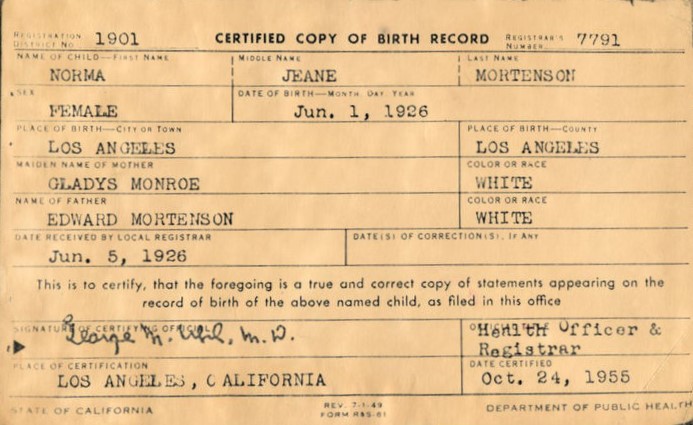
Embarking on the quest to find one's biological father is a profound journey which can be driven by a desire for connection and understanding. This search often involves navigating a range of emotions, from excitement and anticipation to uncertainty and fear. It is not just about filling a missing piece of one's identity but also about seeking answers to deeper questions, such as the circumstances that led to separation or the traits inherited from the biological parents. The process of figuring out how to find a biological father can be both emotionally charged and complex, stirring feelings and revealing insights with every new piece of information uncovered.
As individuals dive into the specifics of how to find their birth father, they may also consider broader questions about their biological parents. This journey requires resilience as it is fraught with potential for vulnerability, such as facing the possibility of rejection or uncovering uncomfortable truths. However, the pursuit itself can be empowering, offering a path toward self-discovery and closure. For those who find their biological father, the reunion can bring immense joy and a newfound sense of completeness, though it also presents challenges in navigating this new relationship. Whether the search culminates in meeting their birth father or leads to more questions, the support of loved ones and access to specialized resources are invaluable in providing both comfort and guidance through this profound journey.
Utilizing DNA Testing to Identify Your Biological Father
Taking a DNA test through a consumer DNA company such as Ancestry.com can be a pivotal first step in preparing to identify your biological father. This process begins with a simple saliva sample, which you collect and send to the lab for analysis. The DNA results can provide you with genetic matches to potential relatives based on shared DNA, offering clues and connections that might not have been discoverable through conventional research methods. This data can significantly narrow down the search for your biological father, highlighting potential familial links and giving you a starting point for further investigations. Additionally, Ancestry.com's vast database not only helps in connecting you with genetic relatives but also provides access to a wealth of genealogical records that can aid in piecing together your family history, making the journey towards understanding your roots clearer and more informed.
DNA: One-to-One Comparison is Not Necessary to Find Your Biological Father
Finding your biological father often involves strategic gathering and analysis of both DNA data and historical records. Interestingly, a one-to-one comparison of DNA is not required to make significant progress in this search. A one-to-one comparison in the context of DNA testing refers to directly comparing the genetic information of two individuals to see if there is a direct match or close similarity that would suggest a familial relationship. This type of analysis is often used to confirm parentage, such as determining if someone is the biological father or mother, or to verify other direct familial connections like siblings or grandparents.
If a potential father is available and willing to provide a DNA sample, his DNA profile can be directly compared to that of the child. However, in many cases, direct access to the potential biological father may not be possible. In such scenarios, you would rely on broader genetic comparisons, such as matching DNA segments with distant relatives who are known to be connected on the paternal line. By using the genetic information from your DNA test, you can connect with distant relatives who share segments of DNA with you. These connections can often provide critical leads, as shared DNA segments suggest common ancestors. By building a network of related individuals through their shared DNA segments, it becomes possible to infer relationships and trace family lines even without a one-to-one DNA comparison. This method involves analyzing shared genetic heritage and using genealogical records to piece together family connections, ultimately leading to the identification of a biological father.
Adoption: Identifying vs. Non-Identifying Information
When dealing with adoption, it is essential to understand the difference between identifying and non-identifying information. Identifying information includes specific details that could directly lead to the identification of biological relatives, such as names, addresses, and direct contact information. Non-identifying information, on the other hand, refers to general background details like ethnicity, medical history, and reasons for adoption without revealing identities. Knowing how to navigate these types of information can be crucial, especially in jurisdictions with strict privacy laws regarding adoption records. As you gather any available details, whether identifying or non-identifying, begin constructing a family tree. Start with any known details regarding your biological family and branch out from there. This visual representation can help you organize the information you collect, recognize patterns or gaps in your lineage, and facilitate discussions with potential relatives or experts who can assist in your search.
Learn How to Utilize DNA to Find Your Biological Father
Our DNA Academy course at Trace Research Academy offers a unique and powerful opportunity to learn tried-and-true methods for utilizing DNA in identifying biological parents. Guided by our professional genealogists, course participants will discover step-by-step how to identify their biological father using the latest techniques and technologies in genetic testing. Throughout the course, our experts share their extensive knowledge and practical tips, demonstrating how to interpret DNA results effectively and integrate them with traditional genealogical research to build a comprehensive family history and ultimately identify a biological father. Whether you're a beginner eager to identify your biological father or you have been working towards this goal for years, the DNA Academy provides the tools and insights necessary to navigate the complex journey of discovering your biological family.




